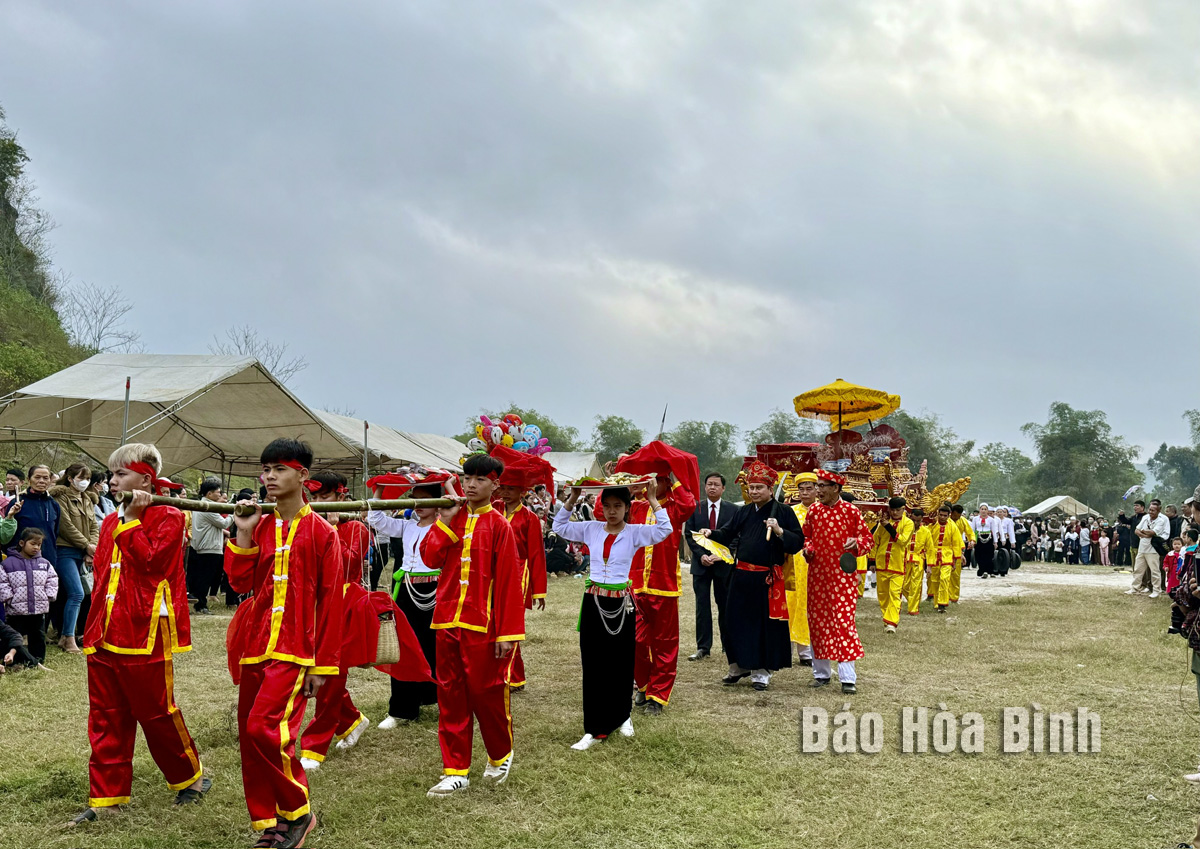



Since 2018, the Buddha Khu Dung Palanquin Procession festival in Nhan Nghia commune, Lac Son has been revived with many unique cultural activities, attracting crowds visitors.
Running from 5th- 6th day of the first lunar new year, Dinh Khoi festival in An Nghia commune meets cultural, spiritual and religious activity demands of the people. This is a major cultural event of Muong Khoi region. The rituals of the festival are fully revived, including a big procession, a horse racing, folk games, and art performances, among others.
In addition to annual festivals such as Coi communal house festival - Vu Binh commune, Bang temple festival in Ngoc Lau commune and Khe communal house festival in Van Son commune are some unique triennial festivals including going to the field festival in Yen Phu commune, Muong Voi swing festival in Vu Ban town, the Buddha Khuu Dung Palanquin Procession festival in Nhan Nghia commune.
Nguyen The Hung, head of Culture and Information office of Lac Son district, said at present the locality has 23 archeological relics, historical and cutltural sites, of which many relics hold historical and revolutionary cultural values associated with spiritual and religious ones, becoming attractive destinations for tourists.
Recently, along with promoting economic, cultural and social development, the district has paid attention to the preservation and promotion of cultural heritage values.
Since 2020, the district has submitted to relevent authorities to recognise the historical and cultural relics at the provincial level, including Dinh Bang relic in Ngoc Lau commune, Khe communal house relic in Van Son commune, and Khoi communual house in An Nghia commune.
As one of the four famous Muong ethnic area in Hoa Binh province, besides rich cultural identities, festivals associated with historical relics, spiritual culture and beliefs are organised to promote tradition of revering ancestors, towards the roots while attracting tourists to the locality.
At the end of May, the Hoa Binh Provincial Ethnic Arts Troupe organized a series of performances for residents in Region 2 and Region 3 communes across the province. Bringing art to ethnic communities in remote, isolated, and especially disadvantaged areas has become a meaningful activity. These are not merely artistic performances but also journeys to disseminate cultural values, enrich spiritual life, and contribute to preserving the cultural identity of ethnic minorities.